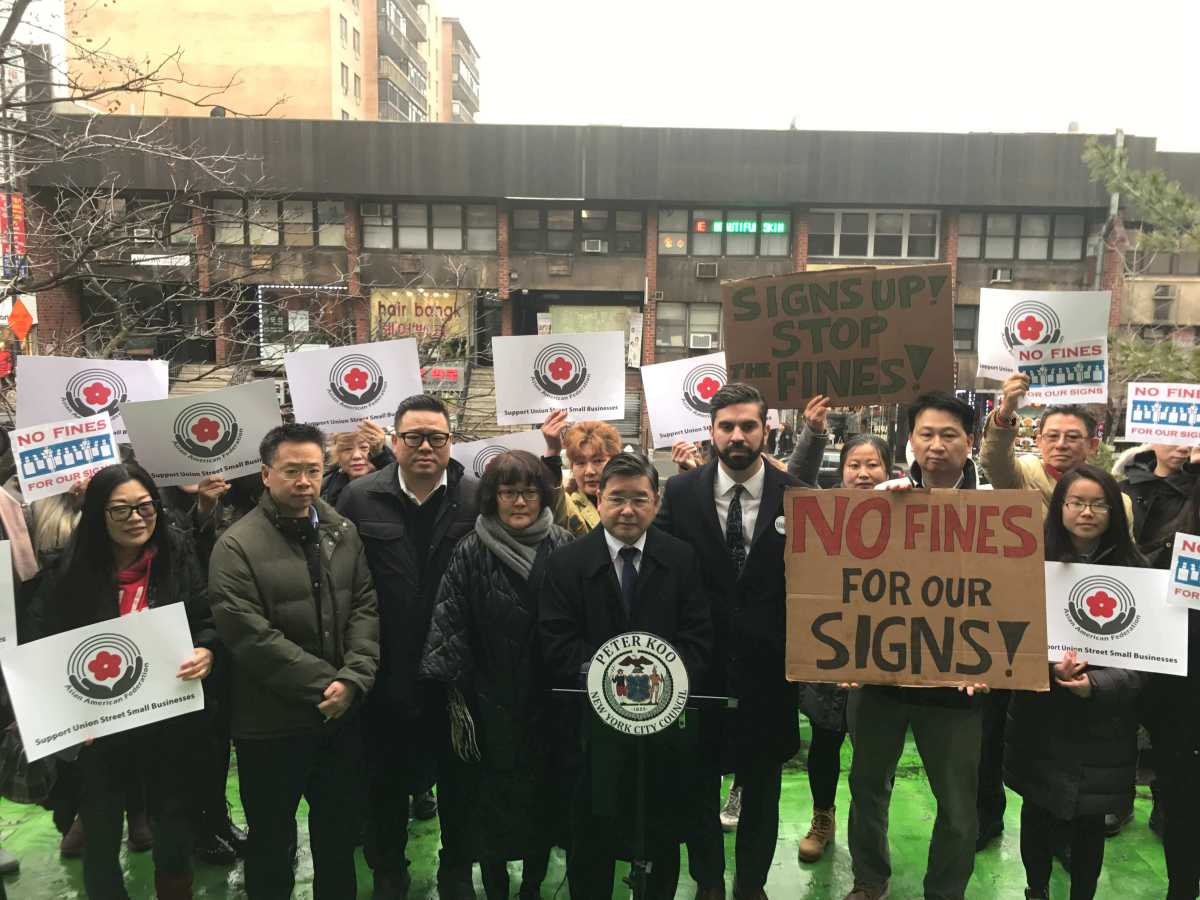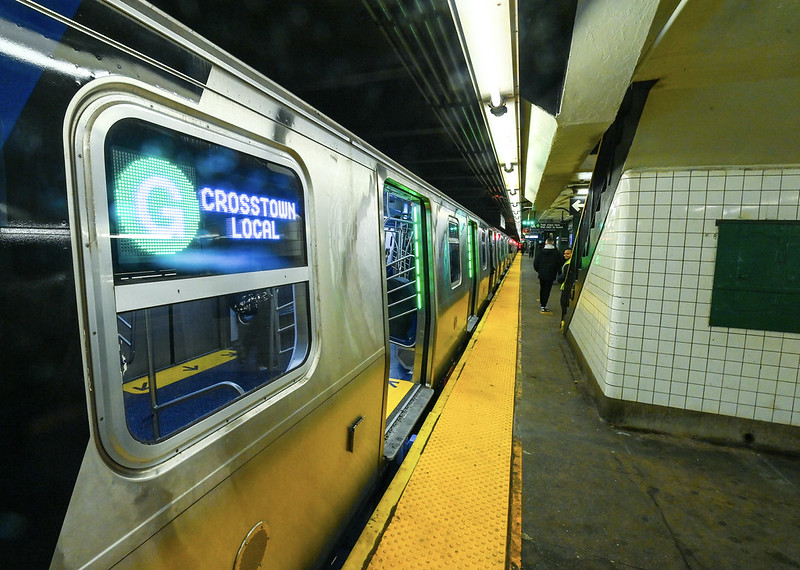The City Council voted overwhelmingly on Wednesday in favor of passing the Awnings Act, legislation supported by Flushing business owners that aims to provide relief to shop owners across the city following a sudden wave of violations for improper signs and awnings.
The Council voted 45-1 on Jan. 9 to pass the legislation that would immediately implement a two-year moratorium on the city Department of Building’s ability to issue any fines/violations relating to business signs.
The successful passage of the legislation comes a day after City Council Members Rafael Espinal and Peter Koo rallied with business owners on Flushing’s Union Street, which has become a barren strip of exposed brick and cement storefronts.
After receiving thousands of dollars in fines, dozens of businesses on the once vibrant Union Street were forced to remove their signs.
Koo said the Awnings Act will give small businesses a “fair chance to comply with the law.”
‘We’ve seen entire blocks around the city preemptively remove their signs because the way that the city handled issuing violations was a business killer,” Koo said in a statement to QNS. “Severe punitive penalties that can force small businesses to close must be handled with great care by the city, but that clearly was not the case with these sign violations. The Awnings Act will allow businesses to fix any outstanding violations without shutting them down. It’s the fair thing to do.”
Espinal, who represents the 37th district in Brooklyn, said they began putting together the integral piece of legislation when businesses in his district suddenly found themselves with $6,000 fines for signs they had up on their businesses for years.
Since November 2017, there have been over two thousand sign violations reported to 311 across the 5 boroughs, according to Espinal.
“The fine combined with the price tag of a new sign can be devastating to a business’ bottom line. As the sudden uptick in violations came to the awareness of my colleagues, we quickly worked together to institute a 2 year moratorium on any sign violations. Businesses will not have to feel the burden of these unjust fines while we work on comprehensive reform to end this unjust practice,” said Espinal.
Additionally, the legislation will also provide education and outreach where the DOB, DCP and SBS must develop an education program for small businesses covering accessory signs, regulations, and how to bring non-compliant signs into compliance.
A task force — comprised of small business owners, chambers of commerce from each borough, union rep, licensed sign hanger and representatives of various city agencies — will investigate predatory practices that might explain the concentration of violations in certain areas and a strategy for reform.
The task force will analyze an outreach strategy to make sure all businesses are better informed about regulations and how to avoid fines before the moratorium is lifted. Within 12 months, the task force must complete an evaluation of the relevance and appropriateness of current regulatory practices and evaluate sign hanging qualifications and if they should be changed.
City Councilman Daniel Dromm of Jackson Heights was the only member who voted against the bill.



































